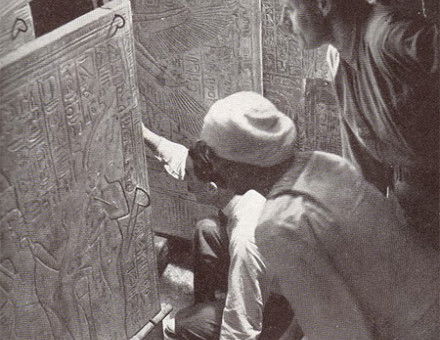Volume 57 Issue 11 November 2007
In the latest of our articles on climate change and the study of history, Mark Levene makes an impassioned plea for historians to leave the comfort zone and spell out where globalism is taking the planet – before it is too late.
Martin Kemp explores the complex and ambiguous relationships between humans and animals in their depictions by artists, and investigates the ways in which animal characteristics have been used to mirror human foibles.
From 1931 it looked as though Britain’s first Labour prime minister would be its last. Is it time to reappraise the political reputation of Ramsay MacDonald?
The young Pharaoh has gripped peoples’ imagination and changed lives. Desmond Zwar looks at the career of the man who claimed to have spent seven years living in the tomb, guarding it while Howard Carter examined its contents.
Archaeology continues to be an irresistible lure to publishers, broadcasters and the general public. The 1990s saw an extraordinary number of spectacular finds across the globe and equally spectacular revelations from ever more sophisticated lab techniques. Brian Fagan, who has taught archaeology since the 1960s, reviews the brave new world of modern archaeological discovery.
Pilgrimages were among the earliest forms of historical travelling, and they remain popular in many parts of the world. Alex Koller tries Japan’s most famous Buddhist pilgrimage.
Kevin Desmond looks for records of a little-known French inventor who rivalled Thomas Edison.
Simon Maghakyan describes the destruction of a vital part of the heritage and early history of Armenians.
Martin Bell, famous for his BBC reports from the war in Bosnia in the 1990s, celebrates the life and work of the man whom modern war reporters admire the most, The Times’ man in the Crimea, W.H. Russell.




